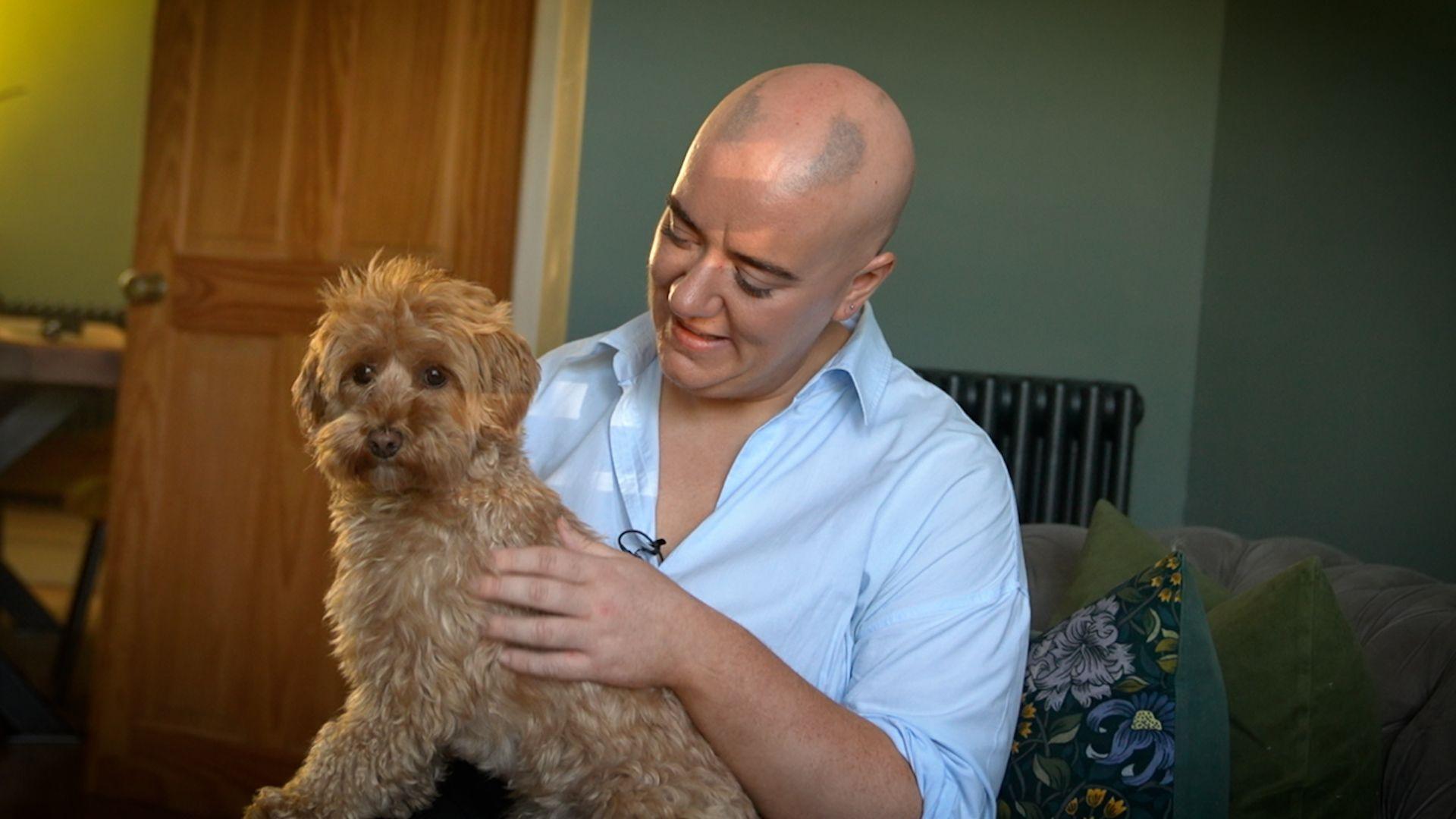'It's an honour to represent women with alopecia'
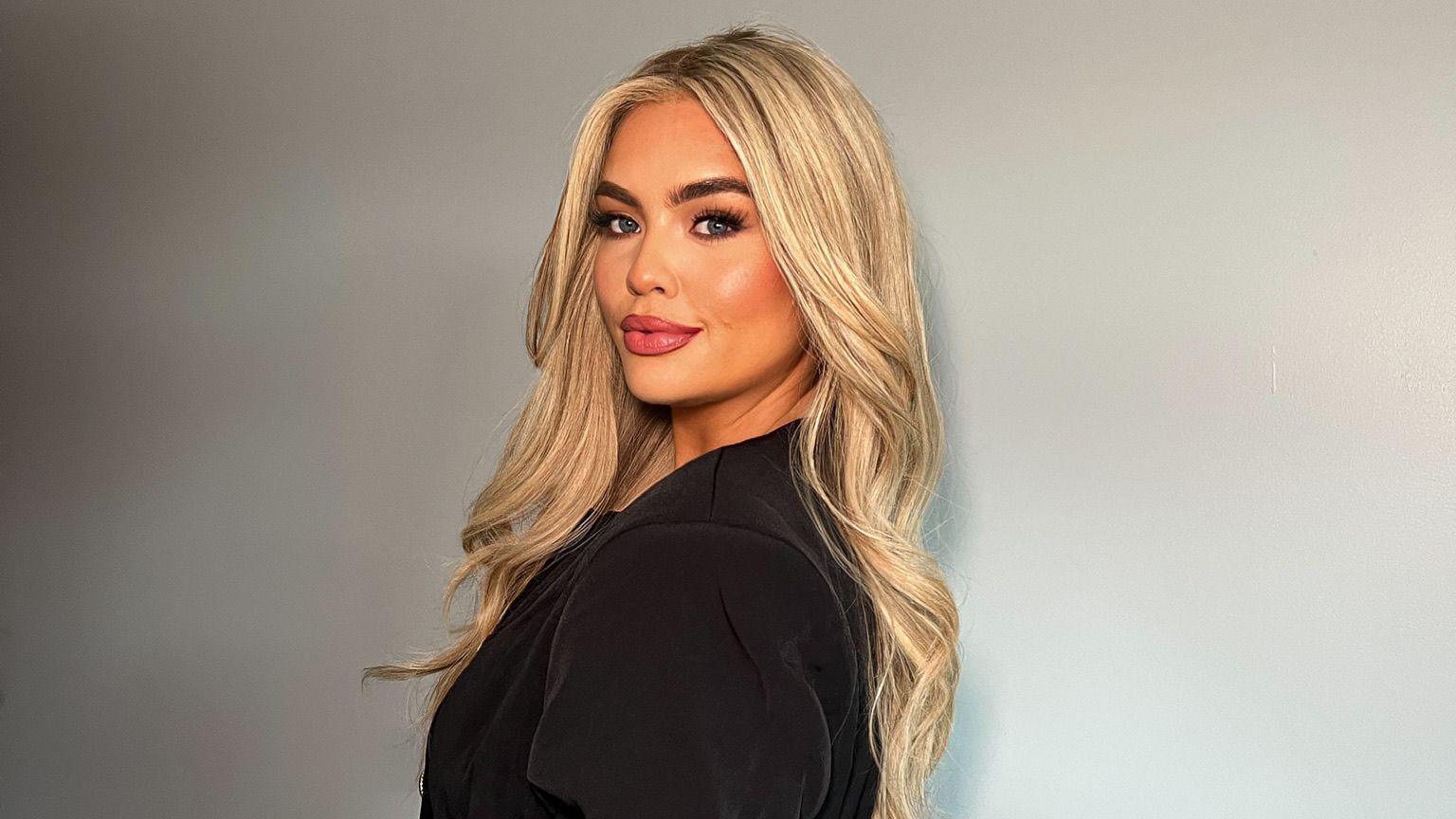
Olivia says that wearing a wig is part of her identity now
- Published
A County Tyrone woman named in the BBC’s 100 Women 2024 list has said it is an “honour” to represent women with alopecia.
Olivia McVeigh, who began losing her hair when she was 17, uses social media platforms to raise awareness and to connect with other people living with the condition.
"I used to think that when people found out I had alopecia, they would think I was weird, but for me now it is my favourite thing to tell people,” she said.
“I talk about my hair loss every day on TikTok and Instagram."
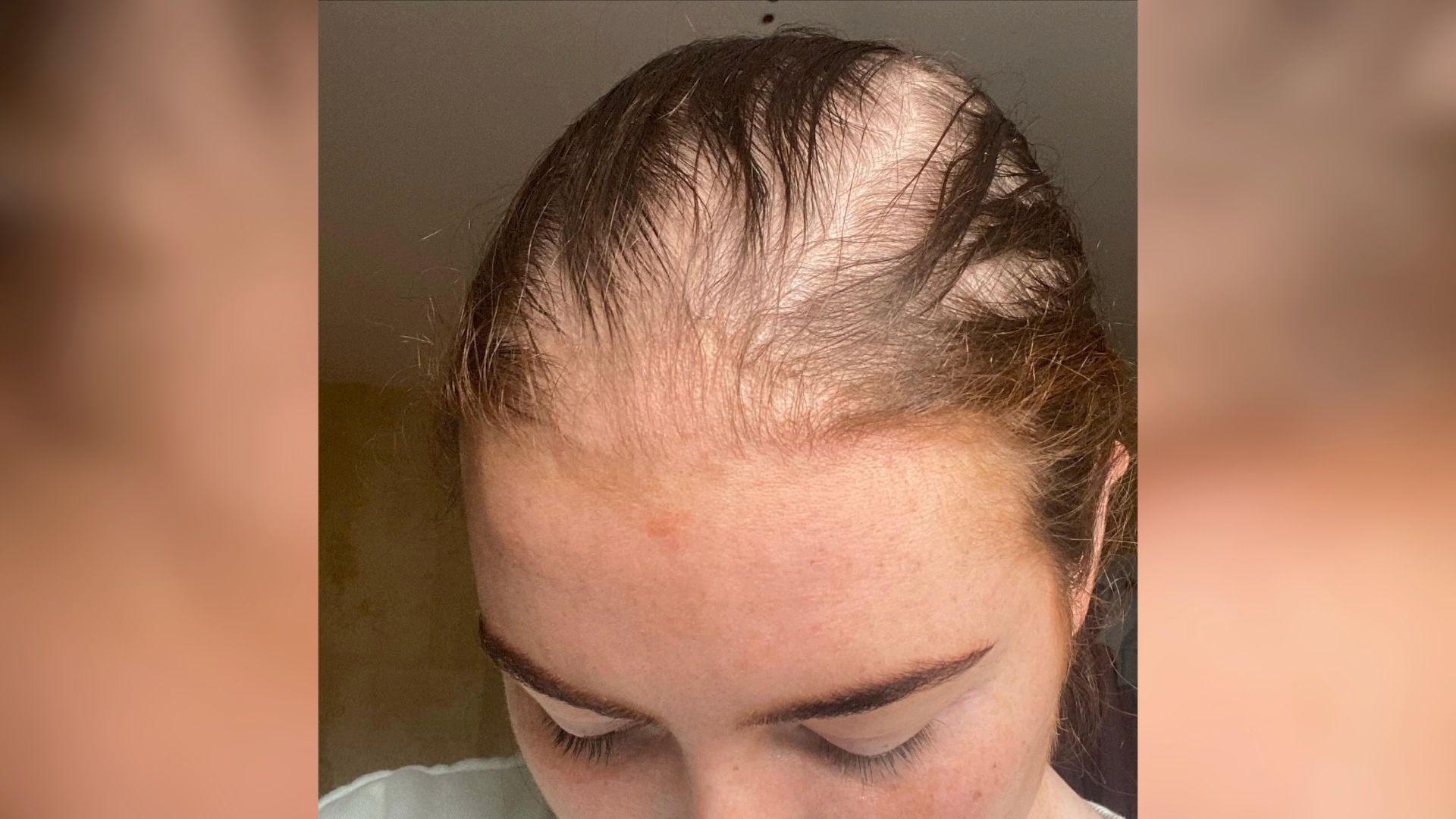
Olivia began losing her hair at age 17 and has been experimenting with wigs since
Olivia, who originally trained as a make-up artist, told BBC News NI that wearing a wig is now part of her identity.
"I realised I was losing my hair when I was 17, I actually realised at my school formal," she said.
"I remember looking at myself in the bathroom and being like ‘I can see through my hair’ but I didn’t really think too much of it."
At the time, Olivia put the thinning of her hair down to the stress of A-Levels.
However, aged 21 she began balding and started thinking about wigs.
"All those little milestones in you life, I started having to think of myself doing that wearing a wig," she said.
"It doesn’t sound like a big deal to most people but I think once you go through it you understand how much of an impact it has on you."
Olivia has amassed nearly half a million followers and uses her platform to help other women facing hair loss
Olivia began posting about hair loss on her Instagram while trying out new styles.
She explained: "I started speaking about it on social media basically because I’m from a really small place.
"I just thought that if I tell everybody that I’m wearing a wig then nobody can talk about me and it just really blow up after that."
Since then, she has amassed almost half a million followers and runs workshops on wigs.
"Usually when I go into a room, I'm the only person wearing a wig and that can feel so isolating,” she said.
"But since creating the workshops and meeting other women like me, we have been able to create a community which has helped me love this part of myself.
"All my wigs have names; I love showing them off."
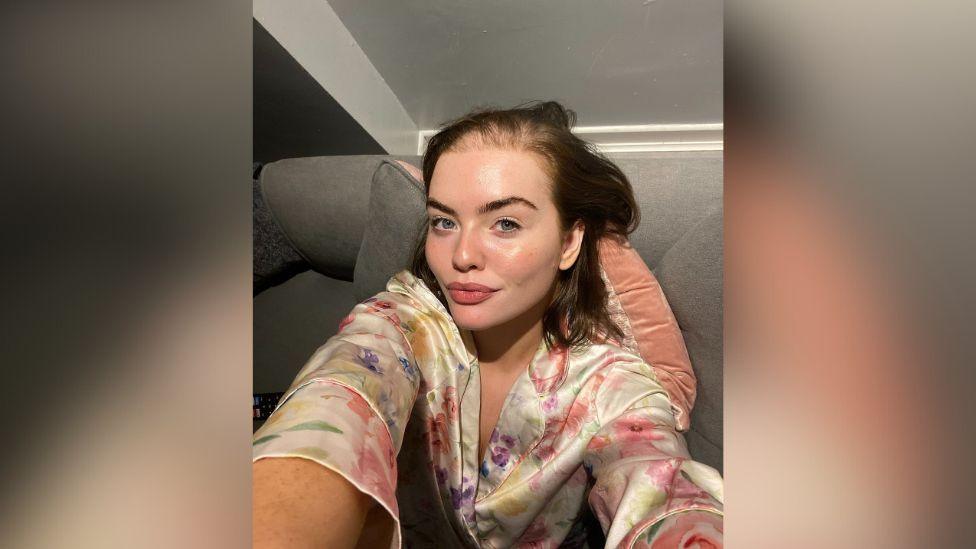
Olivia originally trained as a make-up artist
"There is a stigma, it is still sort of a taboo subject," she said.
"People just don’t know what way to approach it. What I do is try to normalise it."
The BBC 100 Women 2024 list is a compilation of inspiring and influential women from around the world. Among them are stranded astronaut Sunita Williams, rape survivor Gisèle Pelicot and actress Sharon Stone.
"I am so happy to make this list and represent wig wearers and women with alopecia and hair loss alongside all these amazing women,” Olivia said.
"I'm so proud that I've got this far."
What is alopecia?
Alopecia areata is an autoimmune disease, where the body's immune system attacks the follicles of the hair, causing it to fall out.
In severe cases, hair is lost from across the body, affecting eyelashes, nasal hair or hair on the skin.
Severe manifestations can leave people more vulnerable to infections and reduces their ability to regulate their body temperature.
Living with alopecia can also be profoundly challenging, causing anxiety and stress.
People may experience difficulty at school and in the workplace, and it can lead to social isolation, experts say.
Related topics
- Attribution
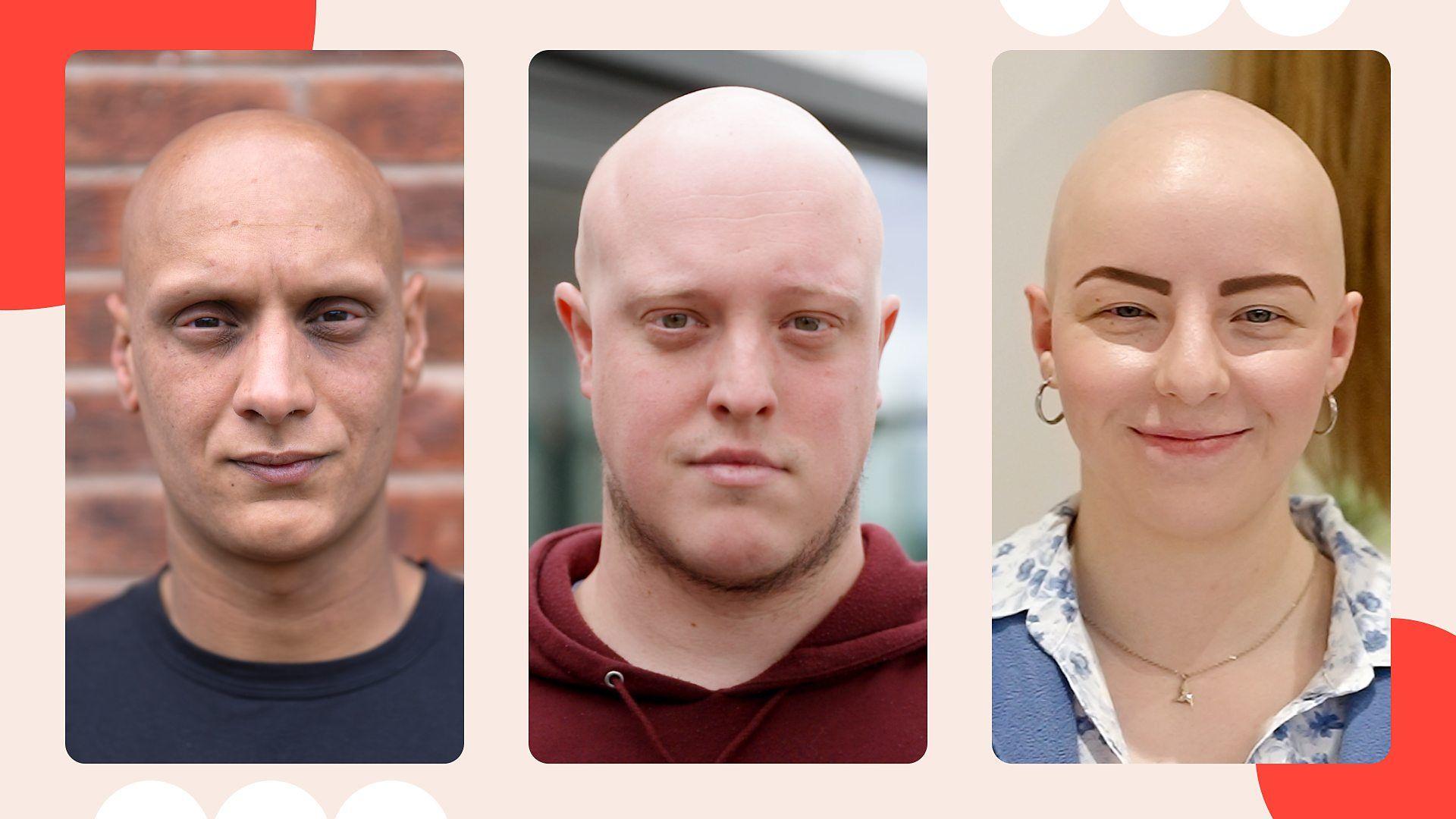
- Published26 February 2024
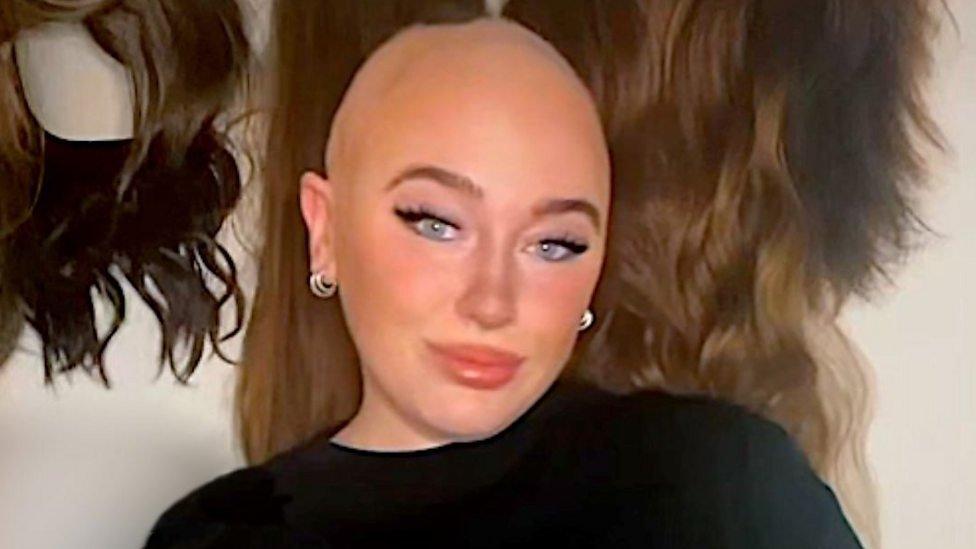
- Published17 October 2024
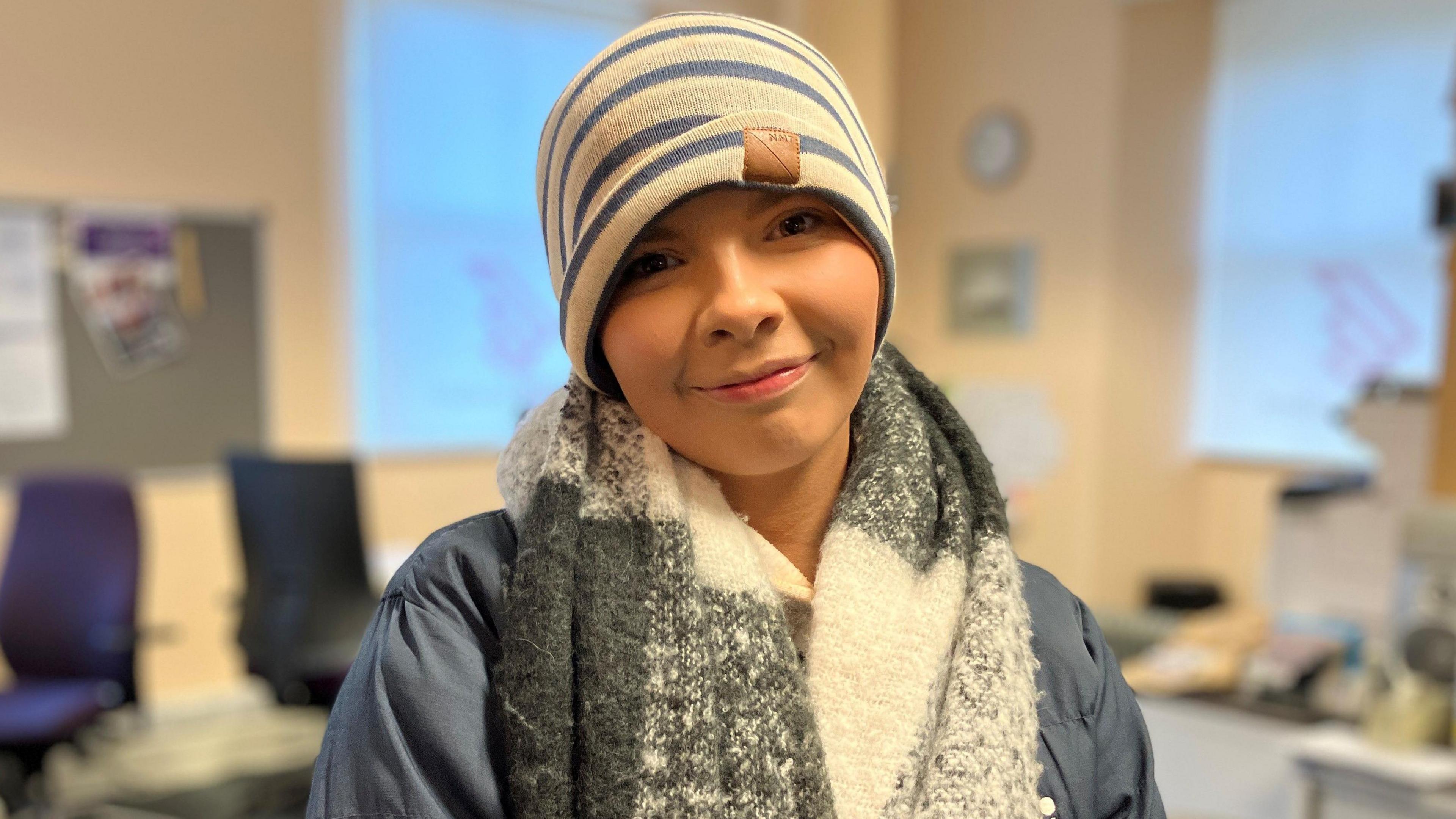
- Published14 September 2024
